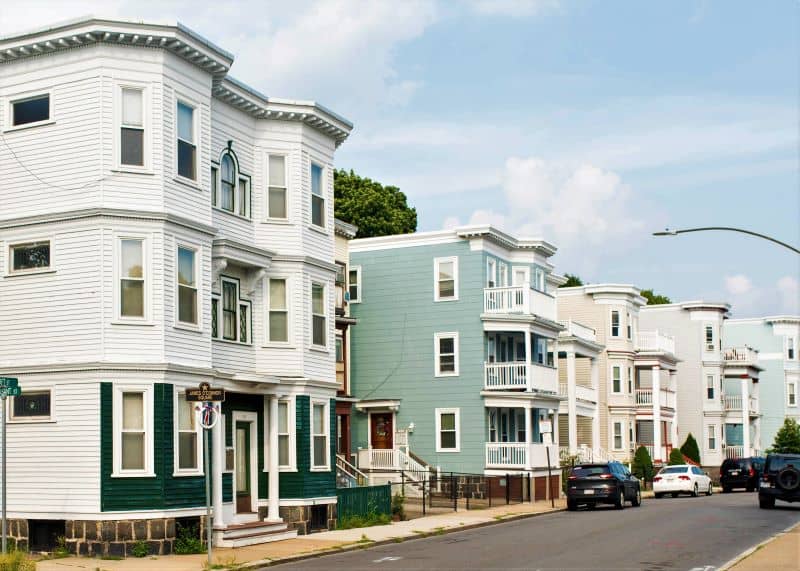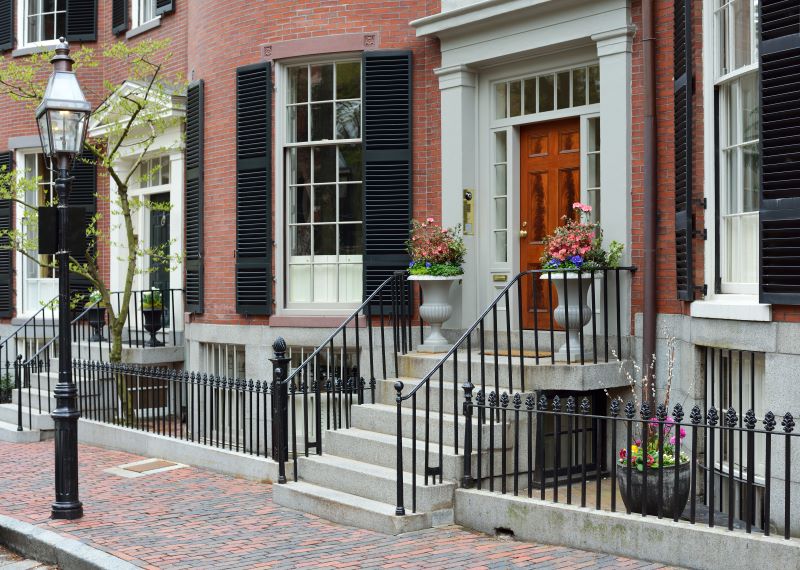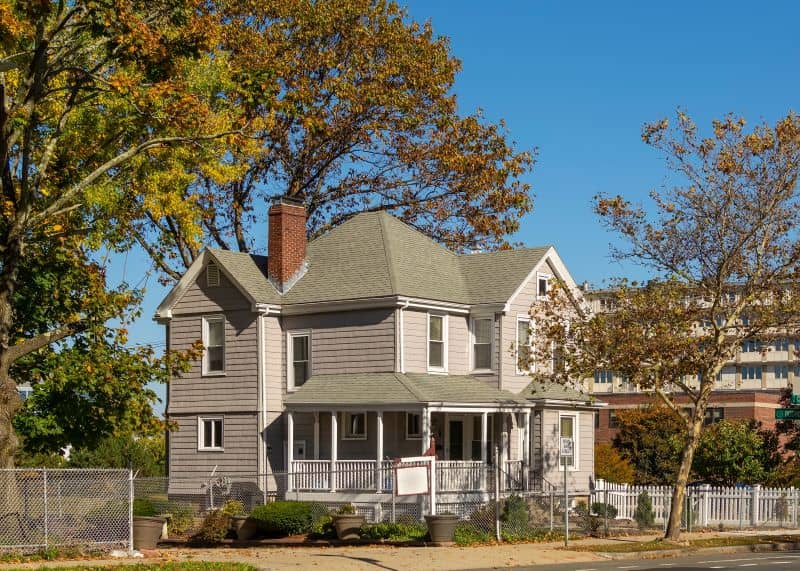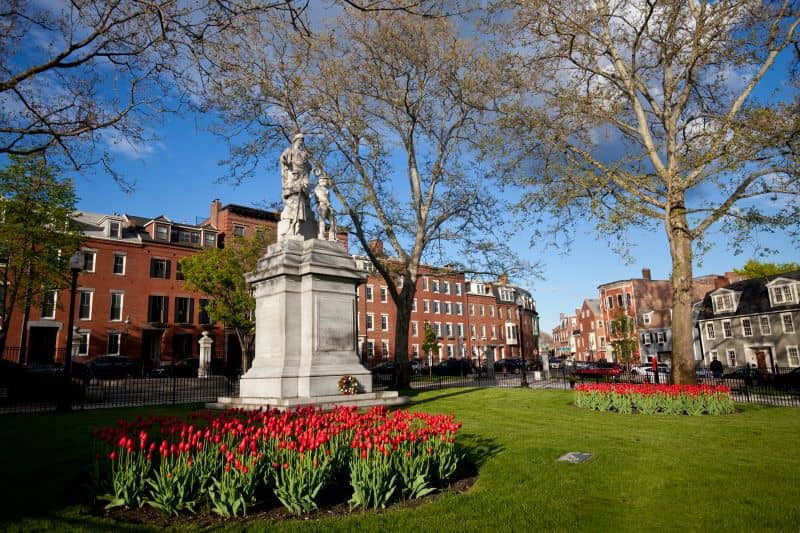
Do you want to start investing in real estate? Are you unsure how to get started? A great first step for many local real estate investors is to purchase small multifamily properties in Boston. It happens to be an incredibly popular way to invest in real estate based on a few factors. Multifamily properties are an asset class that is simple to understand. Most would-be investors have either rented an apartment or purchased a home, that means it’s a lot easier to understand the basic principles. Each apartment must have a kitchen, bathroom, and combination of bedrooms and/or living space.
Tenants can either rent on a month-to-month basis or sign a longer-term lease agreement, either way with the assistance of an agent, the paperwork is relatively easy. The bottom line is that investing in multifamily properties in Boston is significantly less complicated than buying commercial real estate. Commercial real estate is typically more difficult to manage, whether it is a 4+ unit building or asset that has both retail and residential, usually commercial real estate should be managed by a much more experienced investor. Multifamily properties allow you to get your feet wet, they provide you with the opportunity to work out the kinks. By the time you start investing in larger buildings you’ll be a well-oiled real estate investing machine.
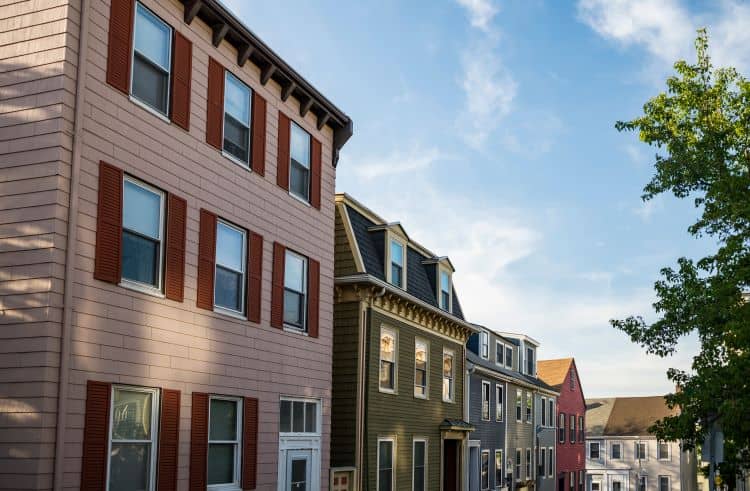
What Type of Real Estate is Defined as Multi-Family Properties?
Did you know that a multifamily property is any piece of real estate that has more than one unit? Let’s start on the low end of the multifamily spectrum with the duplex; a duplex, or two-family home contains 2 units that are attached to each other. With a duplex you have the option to rent both units or live in one and rent the other. It all depends on your personal preferences. Many first-time homebuyers purchase duplexes. They live in one unit and rent the other unit. The rent helps offset the mortgage payment. Other investors purchase duplexes and rent out both units. That way you can have 2 Boston apartments for rent at the same time.
This of course increases your revenue stream. You may also choose to invest in a 3-family or 4-family home, the same holds true. You can certainly live in one unit and rent out the rest or rent out all units. Two to four family properties are the perfect way for new real estate investors to get started. They are significantly easier to finance with banks. They are also significantly easier to manage. You are only dealing with a few tenants at a time. Most investors who own a multi-family property manage it themselves. If you live in one of the units, it’s even easier to manage the property.
You may also find that the interest rates and down payment percentage are lower. This is due to the fact that it could be considered an owner-occupied property. Owner occupied properties have far better mortgage terms. You can save hundreds of dollars per month by managing the property yourself. You can also save hundreds of dollars per month on your mortgage payment with an owner-occupied interest rate.
Larger Multi-Family Properties
If a property contains 5 rental units or more, it’s considered to be a commercial property. Commercial properties can be a great investment. However, they are far more expensive to finance. You will need to qualify for a commercial loan and usually that means a higher interest rate. You will also need a significantly larger down payment percentage.
More units means more tenants, you can always hire a property manager, but that will cost you money each month. That is why most first-time real estate investors stick to 2-to-4-unit multifamily homes. Multifamily properties can include hundreds or even thousands of apartments. That means high rise apartment buildings and large apartment complexes are considered to be multifamily properties. The good news is that you can work your way to invest in those type of buildings if you play your cards right.
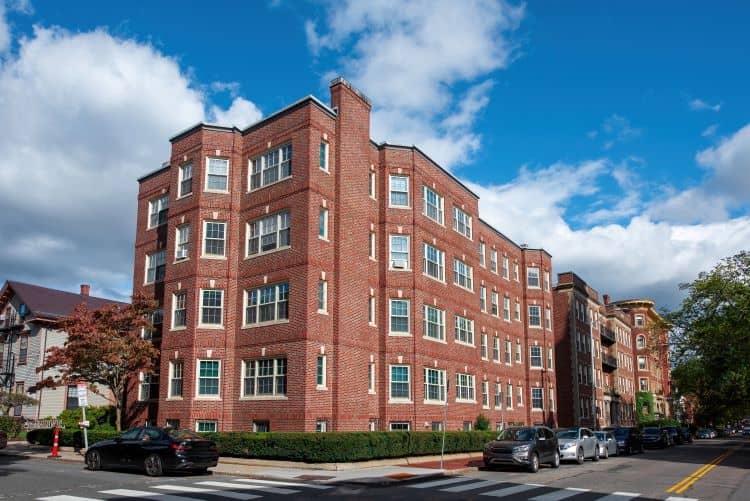
The Benefits of Multi-Family Property Investing
There certainly are many benefits to investing in multifamily properties. They are as follows….
1: Solid Cash Flow
One of the main reasons why real estate investors invest in multifamily properties in Boston is due to the cash flow. The rents generate income on a monthly basis after the mortgage and expenses are paid, this is called positive cash flow. Rents are typically predictable in strong markets like Boston. In addition, apartment units can be turned over and re-leased fairly easily in the city. That all but ensures a steady cash flow from one year to the next. The bottom line is that the amount of Boston apartments for rent is typically low compared to the amount of people who want to rent them.
2: Passive Income Source
Did you know that investing in multifamily real estate in Boston is a great way to earn some extra income? You don’t even need to do much or anything at all if you hire a property management company. That is what’s referred to as passive income. Passive income is the perfect side hustle. You don’t need to spend a lot of time in order to make money by investing in multifamily properties. Hiring a property manager is appealing for investors who have little to zero experience managing real estate. The property manager will literally take care of everything for you, but it’s also up for negotiation. Property management contracts can be tailored to what you want covered as an investor.
3: High Valuation Potential
Over the course of history in Boston, real estate has always appreciated in value. That’s not to say that if you purchase a multifamily property today it won’t go down in value tomorrow. However, even when real estate prices take a nosedive, they have always bounced back. Look at 2008-2009 for example. Real estate prices crashed due to the mortgage crisis. Within a few short years they started to climb back up. Since that time, real estate prices have been increasing, especially in Boston. That’s good news for new real estate investors. In addition, multifamily properties in Boston are far less vulnerable to economic downturns.
4: Significantly Lower Risk
Multifamily homes are considered to be a fairly safe investment when compared to other types of real estate investing. It’s even a bit insulated from the current state of the economy. People may stop buying stocks during a recession, but they still need somewhere to live. That means people will always need apartments to rent no matter the state of the economy. In fact, apartment rentals tend to increase when the economy isn’t doing well. This is due to the fact that some people can no longer afford their houses. They need to sell and move into an apartment.
They need time to recover from a credit and financial standpoint. This creates a demand for apartments even when other industries are suffering. However, if you invest in retail or office space, you may very well lose tenants during economic downturns. To make matters worse you may not be able to replace any lost tenants during an economic downturn. It all comes down to supply and demand in the real estate investment world.
5: Financing a Multi-Family Property
Financing a multi-family property can go a lot of different ways. Depending on whether you are going to owner occupy the property or buy strictly as an investment will have a lot to do with what type of financing you will obtain. If owner occupying a property, you can usually get FHA financing, this means a smaller down payment and more flexibility on your credit score. If investing and not living in the property, the lender will usually require a larger down payment and the interest rate may be higher as well.
6: Easier to Deal with Property Owners Insurance
Just like financing, insurance is also easier to deal with when purchasing 2-4 unit multifamily properties in Boston. On the other hand, your insurance policies will become far more complicated as your real estate portfolio grows. This holds especially true if your real estate holdings include particular amenities. For example, a community pool or rooftop deck will certainly increase your liability insurance. Another good item to go over with your agent is rental coverage. If something happens to the property and you lost your tenants while making necessary repairs, make sure your insurance will cover loss of rent. Your insurance agent should be knowledgeable in multifamily properties. He or she will be able to put together the proper insurance policy for you with all necessary coverages. Additionally, you may need a blanket policy to cover all of your real estate assets as you purchase more properties.
7: Easier to Build up Your Real Estate Portfolio
Another important aspect of multifamily investing is the fact that it’s easy to build up your real estate holdings. Once you have one property up and running, covering the cost of your mortgage and generating positive cash flow, you use that equity to go buy another property. For example, you can complete a cash out refi on one or more of your 2-4 unit properties to buy another multi-family investment.
8: The Tax Benefits
There is a great deal of tax benefits for investors who own multifamily homes. Investors typically utilize a mortgage in order to finance the purchase. That means you can take a significant tax deduction based on the interest paid for the year. That amount is typically larger during the first few years of ownership as the loan starts to amortize. Multifamily homes can then be depreciated over the next 27.5 years. This holds true even if the property appreciates in value. The depreciation is used to offset some of the cash flow in the form of rental income. This fact makes multifamily homes an incredibly attractive asset class for real estate investors.
9: Multifamily Investing Includes Multiple Product Types
There are multiple types of products to consider when investing in the multifamily sector. You can start out by purchasing a duplex on a quiet street in the outskirts of Boston. You can also start out by purchasing a 4-family house in the hustle and bustle of the city. You can pay top dollar and invest in new construction. You can save a lot of money and invest in multifamily homes that are in need of rehab work. You can also invest in older multifamily properties that have already been rehabbed.
The choices are virtually endless. You can invest in multifamily properties that you intend to lease long term or short term. As your real estate portfolio grows you can choose to invest in larger multifamily properties. The higher the risk, the bigger the reward. Multifamily investing is so popular these days because it provides you with choices that fit your investment strategy.

A Few Things to Consider
1: Property Management
Most real estate investors who are just starting out manage the properties themselves. That means you’ll be dealing with the tenants directly. This may be a bit of a learning curve. Tenants have all different personalities, and it’s your job to provide them with suitable housing.
You may very well need to deal with noisy tenants. You may also need to deal with messy tenants. You also need to keep in mind that you may be receiving calls at all hours of the day and night. If the toilet breaks in one of the apartments the tenant won’t hesitate to call you to fix it. These things can add up and take a toll on you. That’s why most experienced multifamily property owners hire a property manager unless they live at the property. Even if you buy a duplex and only have two tenants. It may be worth it to make a bit less profit. Hiring a property manager will help you shed the headaches of being a landlord.
2: The Costs
Multifamily properties in Boston tend to be expensive. We are now experiencing a seller’s market. However, when the property values are high, the rents are also high. Rents in Boston and surrounding areas are near the top of the list for highest rents in the country. So even though you may be paying more for a multifamily in Boston, the higher rents more than make up for it. However, you need to plan accordingly. The higher purchase prices mean you’ll need more money for the down payment. For example, 5% down on a $300,000 purchase equals $15,000.
That is a more than reasonable figure for most multifamily real estate investors. However, that same 5% down payment on a $600,000 multifamily home in Boston equals $30,000. This is just an example. We’re not saying that multifamily properties necessarily cost double in Boston and surrounding areas. You just need to be aware that the higher prices corollate to a higher down payment total. There are a few other factors to consider when purchasing multifamily homes in an expensive real estate market. The property insurance total will be higher and the property taxes will be higher as well. Once again, you can balance out these variables by charging a higher amount for rent.
These calculations should all be completed before you purchase the property, work with an experienced agent to make an educated and informed decision. Know the rents in the area where the property is located, estimate the rehab and repairs if needed. You should feel confident about your numbers and know where you will end up in terms of costs and positive cash flow before submitting an offer.
3: The Competition & Choosing the Right Agent
Once again, investing in multifamily homes has become incredibly popular in recent years. That means there will be a high level of competition when it comes to purchasing the properties. It’s incredibly important for you to work with an experienced real estate agent who specializes in multifamily property sales. That way you will have an upper hand over your competition. Experienced real estate agents will have connections and insights to multifamily properties that have yet to be listed for sale, also known as off-line deals.
They also have the necessary skills to help you choose the best multifamily properties based on your situation. In even better news, real estate agents who represent the buyer are typically paid a commission by the seller when the deal closes. The bottom line is that you will be able to use their expertise and guidance at zero cost.
Not all agents are created equal, most agents are well versed on residential sales, but investment sales require another type of knowledge. Make sure the agent you’re working with understands not only the numbers and estimating the ROI for potential properties but knows and understands the rental market to create those numbers. After all, the rental income is what makes an investment successful. Without the proper tools, agents are left guessing what the income could be, or what the upside is on a specific deal.
All Boston Pads offices have direct access to data and pricing for rentals throughout the Greater Boston area, this allows accurate pricing and ensures a safe investment.
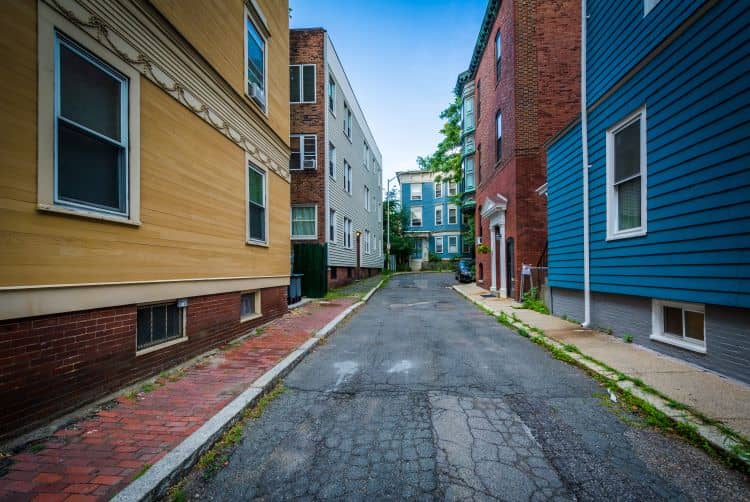
Conclusion
If you’re interested in investing in real estate, you should take a hard look at multifamily properties. You can start out slowly with two to four units at a time. Employ the strategy of living in one unit while renting out the other units. You can choose to manage it yourself or hire a property manager. If you need help getting started, please contact Boston Pads today. We are your Boston real estate specialist. You can find multifamily homes for sale using the area’s largest real time database.
You can also speak with one of our dedicated real estate agents who will be happy to help you through each and every step of our services for buyers. The Boston Pads real estate portal is full of information that you can use to your advantage when investing in multifamily homes. For example, you can also use it as a valuable resource to find one of the best property managers in the city. We look forward to hearing from you and working with you.

Josue Vargas
Published March 22, 2021
Transitioning to real estate sales in 2014, Josue's background in leasing provided an invaluable foundation. His profound understanding of Boston's diverse neighborhoods and market dynamics facilitated a seamless shift. Collaborating closely with seasoned agents at NextGen Realty, Josue swiftly emerged as a top-performing agent. Subsequently, he took charge of the office sales team, propelling NextGen Realty to achieve over 100 million dollars in gross sales transactions annually from 2017 to 2021. This continued success solidified the agency's position as a market leader in investment sales within and around Boston, courtesy of a vast investor network.
With over two decades of real estate expertise, Josue adeptly navigates the ever-evolving market, leveraging his insights to guide investors. His approach involves predominantly offline methods, recognized for uncovering off-market properties, coupled with an unwavering work ethic and an insatiable appetite for industry knowledge. Notably, this achievement culminated in a partnership with the esteemed Boston Pads Family and co-ownership of Douglas Paul Real Estate, underscoring Josue's stature and influence in the field.



